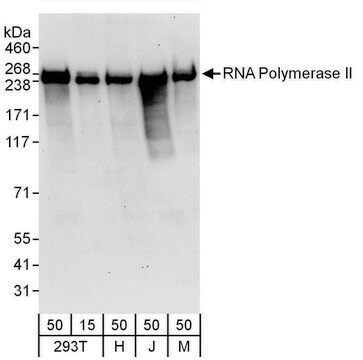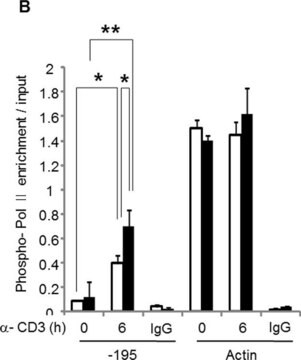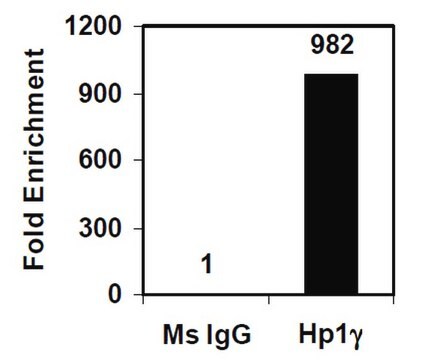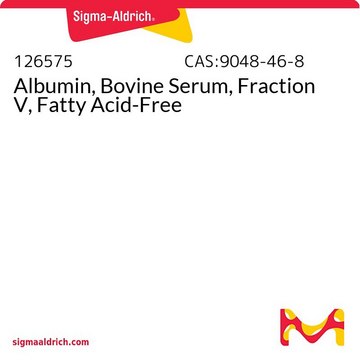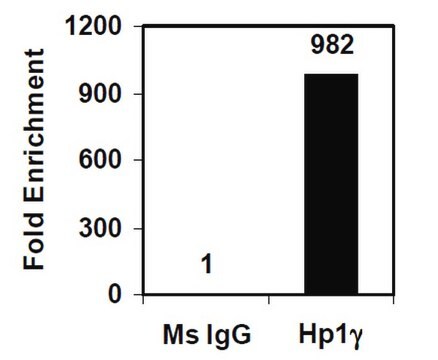CBL221
Anti-RNA Polymerase II Antibody, clone ARNA-3
ascites fluid, clone ARNA-3, Chemicon®
Sinónimos:
DNA-directed RNA polymerase II subunit RPB1, DNA-directed RNA polymerase III largest subunit, RNA polymerase II subunit B1
About This Item
Productos recomendados
biological source
mouse
Quality Level
antibody form
ascites fluid
antibody product type
primary antibodies
clone
ARNA-3, monoclonal
species reactivity
kangaroo, human, Drosophila
manufacturer/tradename
Chemicon®
technique(s)
immunohistochemistry: suitable
western blot: suitable
isotype
IgG1
NCBI accession no.
UniProt accession no.
shipped in
wet ice
target post-translational modification
unmodified
Gene Information
human ... POLR2A(5430)
General description
Specificity
Immunogen
Application
Immunohistochemistry: 1:100; Frozen tissue; fixation recommendation - incubate tissue with 2% paraformaldehyde in PBS for 10 min, wash in PBS for 5 min, incubate in 0.2% Triton X-100 in PBS for 5 min, wash in PBS for 5 min. Incubate with antibody one hour.
Optimal working dilutions must be determined by the end user.
Physical form
Analysis Note
Positive for drosophila, kangaroo kidney epithelial cell line PtK2, and human HeLa and HEp-2 cell lines.
Legal Information
¿No encuentra el producto adecuado?
Pruebe nuestro Herramienta de selección de productos.
Storage Class
10 - Combustible liquids
wgk_germany
WGK 1
Certificados de análisis (COA)
Busque Certificados de análisis (COA) introduciendo el número de lote del producto. Los números de lote se encuentran en la etiqueta del producto después de las palabras «Lot» o «Batch»
¿Ya tiene este producto?
Encuentre la documentación para los productos que ha comprado recientemente en la Biblioteca de documentos.
Nuestro equipo de científicos tiene experiencia en todas las áreas de investigación: Ciencias de la vida, Ciencia de los materiales, Síntesis química, Cromatografía, Analítica y muchas otras.
Póngase en contacto con el Servicio técnico
